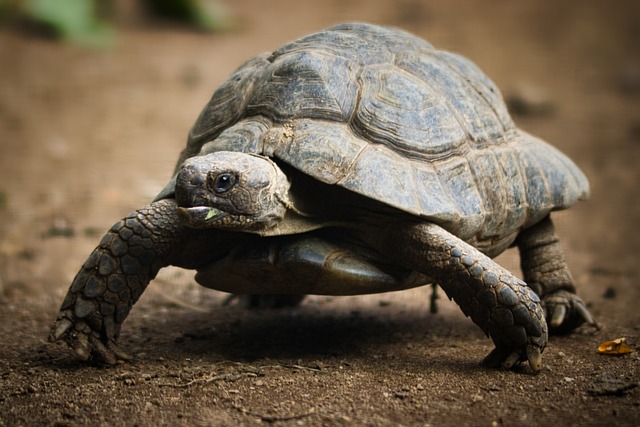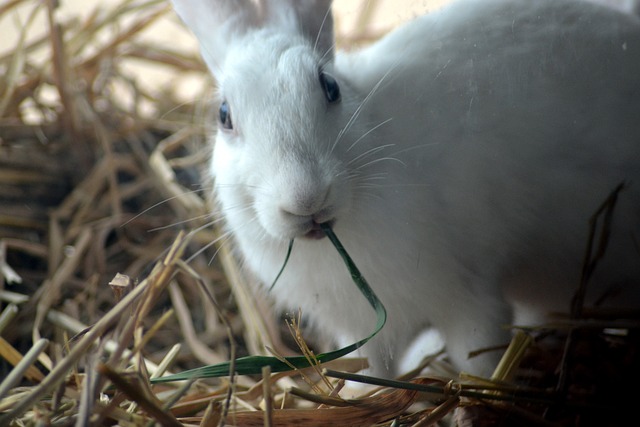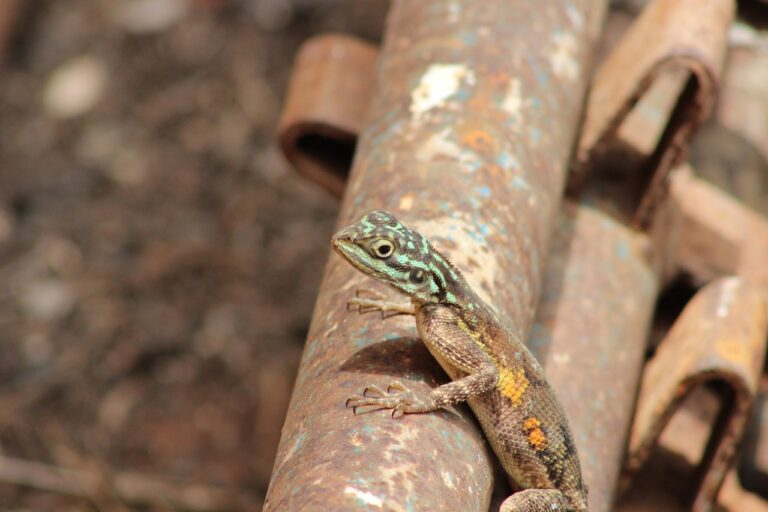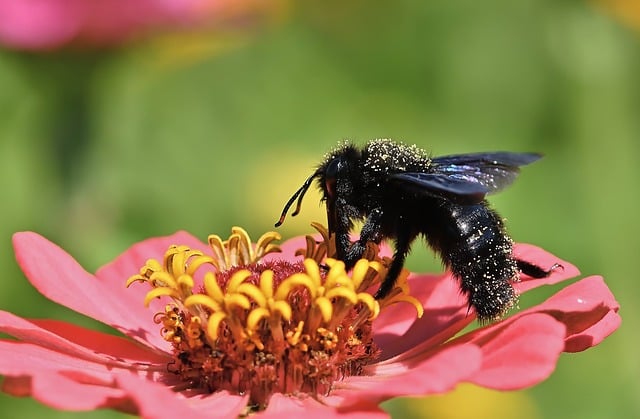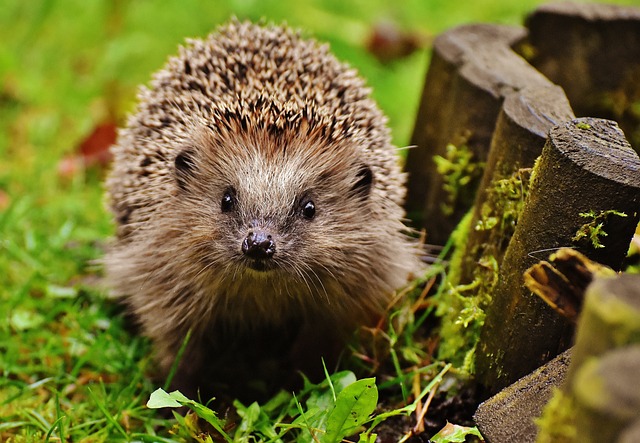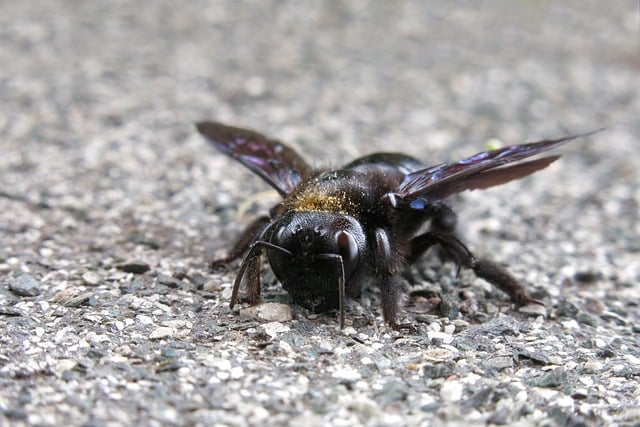Ultimate Sulcata Tortoise Diet Sheet for Optimal Health and Happiness!
Are you a proud owner of a sulcata tortoise? If so, you likely want nothing but the best for your shelled pet. The diet of a sulcata tortoise is a vital factor in ensuring their overall health and happiness. That’s why we have created the ultimate sulcata tortoise diet sheet to help you provide optimal nutrition for your beloved pet.
In this comprehensive guide, we will cover all the essential elements of a sulcata tortoise’s diet, including specific foods to include and avoid. You’ll learn about the right balance of calcium, fiber, and vitamins necessary for their growth and well-being. Whether you have a hatchling or an adult sulcata tortoise, this diet sheet will provide you with the knowledge to meet their nutritional needs.
By following our recommended diet, you can help prevent common health issues and promote a long and prosperous life for your sulcata tortoise. So, let’s dive in and discover the key to optimal health and happiness for your shelled companion!
Understanding the Nutritional Needs of Sulcata Tortoises
Sulcata tortoises have specific nutritional requirements that need to be met in order to keep them healthy and thriving. As herbivores, their diet should primarily consist of high-fiber, low-protein foods. This is essential for their digestive system and overall well-being.
One of the key nutrients that sulcata tortoises need is calcium. Calcium is crucial for maintaining strong bones and a healthy shell. It is important to provide a good balance of calcium to phosphorus in their diet, as an imbalance can lead to metabolic bone disease. Calcium-rich foods such as leafy greens should be a staple in their diet.
Another important aspect of their diet is fiber. Fiber aids in digestion and helps prevent constipation. Sulcata tortoises require a high-fiber diet to keep their digestive system functioning properly. Foods such as grasses and hay are excellent sources of fiber and should be included in their daily meals.
Vitamins are also essential for the overall health of sulcata tortoises. Vitamin A is particularly important for their vision and immune system. It can be found in dark leafy greens and orange vegetables. Vitamin D3 is necessary for the absorption of calcium and can be obtained through exposure to natural sunlight or UVB lighting.
In the next section, we will explore the importance of a balanced diet for sulcata tortoises and how to achieve it.
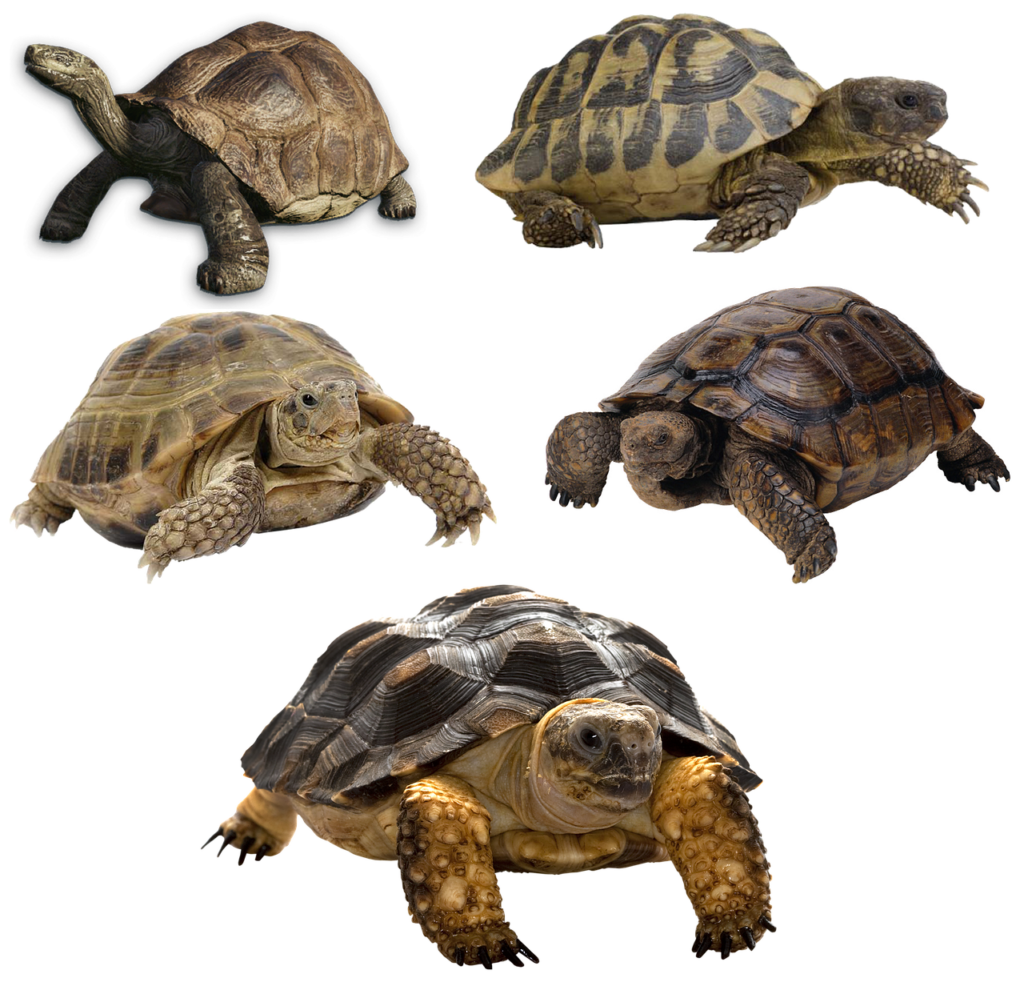
The Importance of a Balanced Diet for Sulcata Tortoises
Maintaining a balanced diet is crucial for the health and well-being of sulcata tortoises. A balanced diet ensures that they receive all the necessary nutrients in the right proportions. This helps prevent nutritional deficiencies and promotes optimal growth and development.
A balanced diet for sulcata tortoises should consist of a variety of foods that provide a good balance of calcium, fiber, and vitamins. Leafy greens such as dandelion greens, kale, and collard greens are excellent sources of calcium and should make up a significant portion of their diet. These greens also provide essential vitamins and minerals.
In addition to leafy greens, sulcata tortoises can also be fed grasses and hay. These foods are high in fiber and help maintain a healthy digestive system. Timothy hay and Bermuda grass are commonly recommended for sulcata tortoises.
It is important to avoid feeding them foods that are high in protein, as this can lead to health issues such as bladder stones. Foods like animal protein, fruits, and vegetables high in oxalates should be avoided. Oxalates can interfere with calcium absorption and contribute to the formation of bladder stones.
By providing a balanced diet, you can ensure that your sulcata tortoise receives all the necessary nutrients for optimal health and happiness. In the next section, we will discuss the staple foods that should be included in their diet.
Staple Foods for Sulcata Tortoises
Staple foods are the foundation of a sulcata tortoise’s diet. These are the foods that should be included in their daily meals to provide them with the essential nutrients they need. Here are some staple foods that are highly recommended for sulcata tortoises:
- Leafy Greens: Leafy greens such as dandelion greens, kale, and collard greens are excellent sources of calcium, fiber, and vitamins. These should make up a significant portion of their diet. Aim to include a variety of leafy greens to ensure a well-rounded nutritional intake.
- Grasses and Hay: Grasses and hay are essential for the high-fiber content they provide. Timothy hay and Bermuda grass are commonly recommended for sulcata tortoises. These foods help maintain a healthy digestive system and prevent constipation.
- Edible Weeds: Edible weeds such as plantain, clover, and chickweed can be a nutritious addition to their diet. These weeds often grow naturally and can be foraged or purchased from reputable sources.
- Sulcata Tortoise Pellets: Commercially available sulcata tortoise pellets can be a convenient way to supplement their diet. However, these should not be the sole source of nutrition and should be used in moderation.
By including these staple foods in their diet, you can ensure that your sulcata tortoise receives the necessary nutrients for optimal health. However, it is important to remember that variety is key. In the next section, we will discuss the importance of incorporating diverse foods into their diet.
Must Read : The Ultimate Guide to Pancake Tortoise Care: Expert Tips for Happy and Healthy Turtles
Variety is Key: Incorporating Diverse Foods into the Diet
While staple foods are important, it is equally important to incorporate a variety of foods into your sulcata tortoise’s diet. This helps provide a wider range of nutrients and prevents boredom from eating the same foods every day. Here are some diverse foods that can be included in their diet:
- Vegetables: In addition to leafy greens, sulcata tortoises can also be fed a variety of vegetables such as carrots, squash, and bell peppers. These vegetables provide additional vitamins and minerals to their diet.
- Fruits: While fruits should be fed in moderation due to their high sugar content, they can be offered as occasional treats. Fruits such as strawberries, melons, and papayas can provide a refreshing and nutritious addition to their diet.
- Cacti Pads: Certain cacti pads, such as Opuntia, can be included in their diet. These provide hydration and additional fiber.
- Herbs: Herbs such as basil, parsley, and cilantro can be added to their meals to enhance flavor and provide additional nutritional benefits.
By incorporating a diverse range of foods into their diet, you can ensure that your sulcata tortoise receives a well-rounded nutritional intake. However, it is important to be aware of foods that should be avoided. In the next section, we will discuss foods that should be avoided when feeding sulcata tortoises.
Foods to Avoid Feeding Sulcata Tortoises
While it is important to know what foods to include in a sulcata tortoise’s diet, it is equally important to know what foods to avoid. Feeding the wrong foods can lead to health issues and nutritional imbalances. Here are some foods that should be avoided when feeding sulcata tortoises:
- Animal Protein: Sulcata tortoises are herbivores and should not be fed animal protein. Foods such as meat, eggs, and dairy should be avoided as they can lead to health issues such as bladder stones.
- Fruits High in Sugar: While fruits can be included as occasional treats, it is important to avoid feeding fruits that are high in sugar. Fruits such as bananas and grapes should be fed in moderation.
- Vegetables High in Oxalates: Vegetables high in oxalates, such as spinach and beet greens, should be avoided. Oxalates can interfere with calcium absorption and contribute to the formation of bladder stones.
- Processed Foods: Processed foods, such as packaged snacks and human food, should be avoided. These foods are often high in sodium, preservatives, and unhealthy fats, which can be detrimental to their health.
By avoiding these foods, you can help prevent health issues and ensure that your sulcata tortoise receives a balanced and nutritious diet. In the next section, we will discuss the feeding schedule and portion control for sulcata tortoises.
Feeding Schedule and Portion Control for Sulcata Tortoises
Establishing a feeding schedule and practicing portion control is important to maintain a healthy weight for your sulcata tortoise. Overfeeding can lead to obesity, while underfeeding can result in nutritional deficiencies. Here are some guidelines for feeding schedule and portion control:
- Feeding Schedule: Sulcata tortoises should be fed once or twice a day, depending on their age. Hatchlings may require two small meals a day, while adults can be fed once a day. It is important to establish a consistent feeding schedule to promote healthy eating habits.
- Portion Control: The amount of food to feed your sulcata tortoise will depend on their size and age. As a general guideline, the amount of food offered should be roughly the size of their shell. It is important to monitor their weight and adjust the portion size accordingly.
- Monitor Eating Habits: Observing your sulcata tortoise’s eating habits can help you determine if they are eating the right amount. If they consistently leave food uneaten or show signs of overeating, adjustments may need to be made.
- Monitor Hydration: In addition to food, it is important to ensure that your sulcata tortoise has access to fresh water at all times. Hydration is crucial for their overall health and well-being.
By following a feeding schedule and practicing portion control, you can help maintain a healthy weight and prevent nutritional imbalances in your sulcata tortoise. In the next section, we will discuss supplements that can be beneficial for their overall health.
Supplements for Sulcata Tortoises
While a balanced diet should provide most of the necessary nutrients for sulcata tortoises, there are certain supplements that can be beneficial for their overall health. Here are some supplements that can be considered for sulcata tortoises:
- Calcium Supplement: Calcium supplementation is important to ensure they receive an adequate amount of this vital mineral. Calcium supplements can be in the form of powdered calcium carbonate or calcium gluconate. It is important to follow the recommended dosage and consult with a veterinarian.
- Vitamin D3 Supplement: Vitamin D3 supplementation may be necessary, especially if your sulcata tortoise does not have access to natural sunlight or UVB lighting. Vitamin D3 helps with the absorption of calcium and is important for their overall health. It is important to consult with a veterinarian to determine the correct dosage.
- Probiotics: Probiotics can be beneficial for maintaining a healthy gut flora and aiding in digestion. They can be added to their diet in the form of supplements or through natural sources such as fermented vegetables.
It is important to note that supplements should not replace a balanced diet but should be used as a complement to ensure optimal nutrition. It is recommended to consult with a veterinarian before introducing any supplements to your sulcata tortoise’s diet.
Monitoring the Health and Happiness of Sulcata Tortoises through Diet
Monitoring the health and happiness of your sulcata tortoise can be achieved through their diet. By observing their eating habits, weight, and overall behavior, you can assess if they are receiving the right nutrition. Here are some key points to consider when monitoring their health and happiness:
- Eating Habits: Sulcata tortoises should show a healthy appetite and actively feed on their food. If they consistently refuse food or show a lack of interest, it may indicate an underlying health issue.
- Weight: Regularly monitoring their weight can help you determine if they are maintaining a healthy weight. Sudden weight loss or gain can be a sign of health problems.
- Shell Condition: The shell should be smooth and free from any abnormalities or soft spots. A healthy shell is a good indicator of their overall well-being.
- Activity Level: Sulcata tortoises should exhibit normal activity levels, including walking, exploring, and basking. If they show signs of lethargy or lack of energy, it may indicate an underlying health issue.
By closely monitoring these factors and making adjustments to their diet as needed, you can ensure the health and happiness of your sulcata tortoise. Providing them with the best care is essential for their well-being.
Conclusion: Providing the Best Care for Your Sulcata Tortoise
In conclusion, a balanced and nutritious diet is essential for the health and happiness of sulcata tortoises. Understanding their nutritional needs and providing them with the right foods in the proper proportions can help prevent health issues and promote optimal growth and well-being.
By following the ultimate sulcata tortoise diet sheet outlined in this guide, you can ensure that your beloved pet receives the best care. Remember to include staple foods such as leafy greens and grasses, incorporate a variety of foods for a well-rounded diet, avoid feeding foods that can be harmful, establish a feeding schedule and practice portion control, consider supplements for optimal nutrition, and monitor their health and happiness through their diet.
Your sulcata tortoise deserves nothing but the best, and with the knowledge gained from this guide, you can provide them with the ultimate care they deserve. Here’s to a long and prosperous life for your shelled companion!
